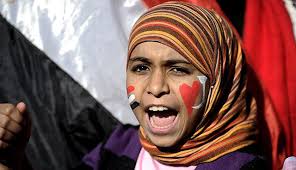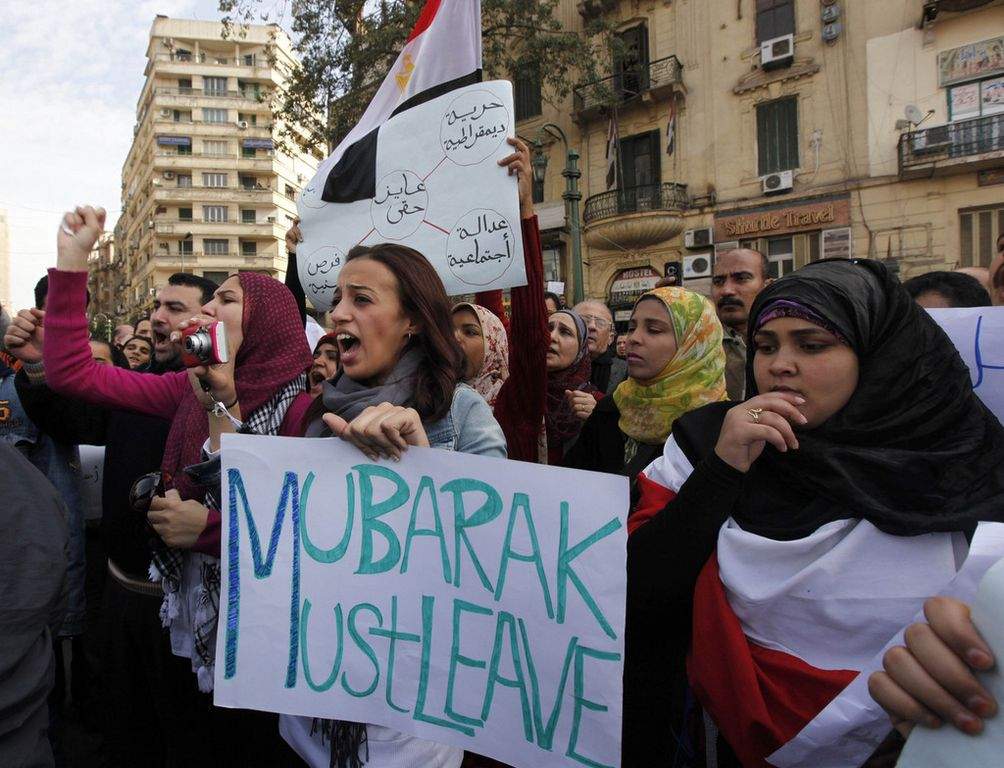
A court in Egypt ruled yesterday, December 27, 2011, that imposing `virginity tests’ on women prisoners in military prisons is wrong and unconstitutional. The court is expected to further decide that such tests are completely illegal, which would open the possibility of financial compensation for the wrongs committed.
This is one of two cases filed by Samira Ibrahim and Maha Mohamed, two of the women who had been subjected to the test. The other, equally important case challenges the referral of prisoners to a military court.
The court’s decision was a great one. The greater act, however, was that of Samira Ibrahim, Maha Mohamed, Salwa al-Hosseini and all the women across Egypt who have organized, pushed, repelled attacks, and kept on keeping on. When they have been attacked, they have said, publically, “I tell female activists go to the square and don’t be afraid, this is our square.” And then, they have gone to the square, to all the squares and all the streets.
Women pushed Mubarak out of office, and women today are pushing at more than the military. Egyptian women are pushing at patriarchy itself.
Much of the focus of the last day has been on Samira Ibrahim, a woman who refused to stay silent, refused to submit, refused to behave. While Samira Ibrahim is indeed a courageous and feminist woman, she is not “the woman” behind the ban nor is she “one brave woman.” Rather Samira Ibrahim is one of the women, one of the brave women, who have opposed the assaults on women and continue to do so.
At the beginning of the year, when the women of Egypt pushed Mubarak out, the world watched, and shared and cherished, their names. Today, as the year closes and the women of Egypt assault the very foundations of State patriarchy, we again remind ourselves that behind every individually named women – such as Ghada Kamal Abdel Khaleq, Sanaa Youssef, Samira Ibrahim, Maha Mohamed, Salwa al-Hosseini, Mona Eltahawy, Mona Seif – and behind every named women’s organization, such as Nazra for Feminist Studies or the New Woman Foundation, there is a world of women, on the march.
They know the military, they know the violence, they know the patriarchy, and they reject them, one and all. The women of Egypt are neither surprised nor daunted when a military prosecutor condemns the end to `virginity tests.’ They are, instead, in the streets, affirming their womanhood and their humanity, “I will not give up my rights as a woman or as a human being.”
So, as the year ends, let’s say, as Samira Ibrahim did after she heard the verdict, “Thank you to the people, thank you to Tahrir Square that taught me to challenge, thank you to the revolution that taught me perseverance.” Thank you to the women of Egypt.
(Photo Credit: ElMundo.es/AFP)
